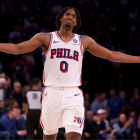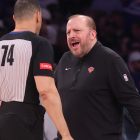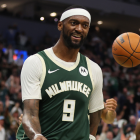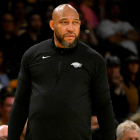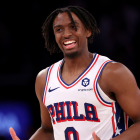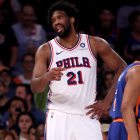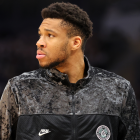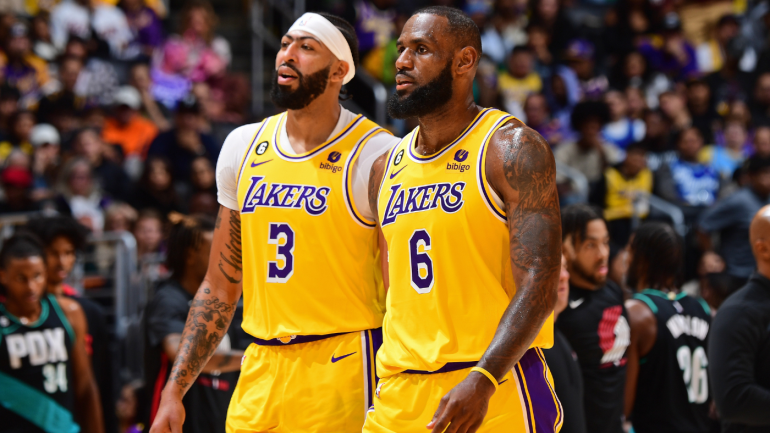
When LeBron James missed time due to injury earlier in the season, he gushed about the performance of teammate Anthony Davis in his stead. "AD was the best player in the league over the last four-to-five games," James told reporters late in November. He wasn't far off at the time. In the five games James is referring to, Davis averaged 33.2 points and 17.4 rebounds per game.
More importantly, he lifted a team that was 2-9 at the time of James' injury back up to 5-11 upon his return. He didn't slow down when James returned to the fold either. From Nov. 11 through Dec. 4, Davis averaged 34.2 points per game as the Lakers won seven of 10. He dealt with illness, missed the better part of two games, returned for four more, and then, just like James, he was gone. His injury was a good deal more severe. A stress injury in his foot has kept him out since Dec. 18. The Lakers were 11-16 at the time. Without their best player, their season looked over.
But it isn't over because, in Davis' absence, James may have reclaimed the mantle of best player in the league. The Lakers have tread water without Davis. They are currently 5-5 since he went down and 16-21 overall. The 38-year-old James is averaging 34.6 points per game in his past 10 appearances, amazingly giving the Lakers two different players with 34-point averages over a 10-game stretch with only 37 total games played. In the process, he's guided the Lakers through perhaps the hardest portion of their schedule. They've played 13 of their past 17 games on the road, but nine of their next 12 are at home.
"I was scoring 30 points and it wasn't working," James quipped after his 47-point birthday outburst on Dec. 30. "Let me try to score 40." He's now done so in consecutive games, reaching 43 in a masterclass against the Hornets. It was the first time he scored 40 in back-to-back games as a Laker, and -- for reasons Father Time cannot explain -- they came in the first two contests James played after turning 38.
It's a perfect encapsulation of what this season has been for James, Davis and the Lakers. The narrative surrounding Davis has been that injuries have sapped him of the athleticism that once made him great. He proved his doubters wrong when James was out. Age was supposed to be James' kryptonite. The 38-year-old version of him, thus far, has been even better than his 37-year-old self.
James recruited Davis to Los Angeles. He became a Laker so that the two could play together. This season, their best work has come apart. It has had to, because no other teammate has stepped up to provide consistent support for either superstar. No Laker besides James has averaged even 15 points per game in the nine games Davis has sat out since hurting his foot. Only Atlanta has made fewer 3-pointers as a team this season.
It is perhaps the purest expression of superstardom that exists in basketball. James and Davis do not have space to operate within. They haven't had one another for support, or much of it from anyone else on their team. Yet both have held together a season on the brink of collapse with little more than their greatness.
James probably isn't the best player in basketball anymore. What's he doing now is the outlier. Virtually all of his offensive numbers were trending down before Davis went down. He wasn't getting to the basket in the half-court, and his once stellar defense still comes and goes. Davis probably isn't the best player in the NBA either. The jump-shot that might have bought him a ticket to that conversation after the 2020 bubble is gone, and his durability is still too questionable to warrant such an honor.
But for 10 games here and there, both of them have proven capable of rising to that level. It's kept the Lakers alive in the play-in race. They sit just two games behind the fading 10th-place Utah Jazz. That's hardly a place to aspire to, but remember, James and Davis are far better together. They won a championship together the last time they were both healthy. What they're doing separately should be a reminder to their opponents -- and their own, hesitant front office -- of what this team can be when their superstars are eventually able to share the court again.














